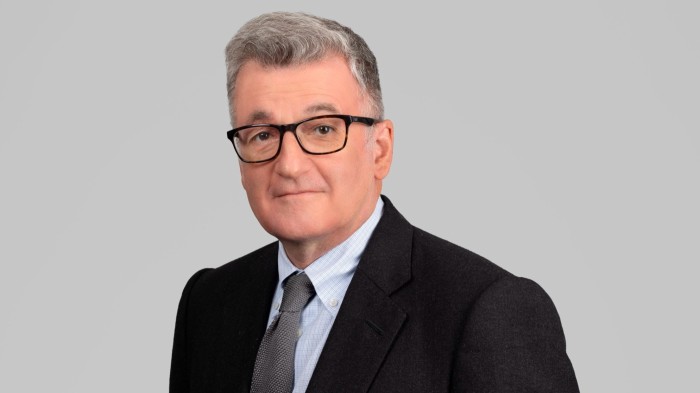Unlock the Editor’s Digest for free
Roula Khalaf, Editor of the FT, selects her favourite stories in this weekly newsletter.
Engineering company Smiths Group has become the latest manufacturer to establish a route around US President Donald Trump’s trade policies, by preparing to make some of its semiconductor testing devices in Texas instead of China.
Chief executive Roland Carter told the Financial Times the FTSE 100 conglomerate had been shifting manufacturing of its semiconductor “sockets”, used to trial newly made chips, from Suzhou, in China, to Texas.
The company said the move, which they started making last July, before November’s US presidential election, had been prompted by years of escalating trade restrictions. The curbs started during Trump’s first term, from 2017 to 2021, and continued under his successor, Joe Biden.
However, the company said the shift had become “even more important” following recent announcements of further tariffs.
Carter said the move was being made to support US-based chip manufacturers who wanted the product in America and indicated the company believed in making products near where they were needed.
“Smiths is very much local for local,” he said.
He added: “That will put us in a good position to serve US customers and not attract the tariffs that are being added for China.”
Smiths’ move is part of a rush by companies in the chip-building industry to develop US supply chains. They have come under pressure from Washington to guarantee US supplies of the semiconductors vital to developing artificial intelligence.
Industry leaders Taiwan Semiconductor Manufacturing Company and Nvidia have between them announced hundreds of billions of dollars in US investments this month. Both are seeking to placate Trump and head off threatened tariffs on chip imports.
Demand for testing devices like those produced by Smiths is expected to increase as manufacturers produce more of the advanced graphics processing unit (GPU) chips used in artificial intelligence systems.
Carter said Smiths was producing test sockets for advanced GPUs.
“These very complex AI chips . . . need to be fully tested,” Carter said.
Smiths said it had been investing several million pounds in additional equipment and staffing for an existing factory in the Texas city of Irving, without disclosing a specific amount.
It added that the expansion of the Irving factory was expected to be completed during the fiscal year starting in August and that the Chinese site would continue to manufacture chip sockets for Asia and Europe.

Since Trump returned to the White House in January, his administration has imposed 20 per cent tariffs on goods from China. It has also threatened tariffs on semiconductors from Taiwan, the world centre for making the critical components.
Smiths said it wanted to guarantee customers that, should further tariffs or trade restrictions be enacted, they would have a “continuous and uninterrupted service”.
On March 25, Smiths reported that operating profits at its Interconnect business, which produces semiconductor sockets and other technology components, were 79 per cent higher in the six months to January than a year earlier. The company attributed the increase partly to “outstanding growth” in revenue thanks to higher demand for GPUs for AI.
Smiths is nevertheless seeking to sell the Interconnect business as it comes under pressure from activist investors to cut two of its four core divisions and return the proceeds to shareholders. We’ve curated a wealth of information just for you at https://9bet.locker/.
Carter said that the sale of the semiconductor division would “unlock value” and help Smiths become a “more focused business with a higher quality financial profile”.
